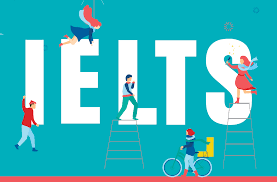
In a world that’s constantly evolving, the terms “education” and “training” often pop up in discussions about personal and professional development. While many people use them interchangeably, they each play distinct roles in shaping our skills, knowledge, and career trajectories. Imagine education as the broad canvas of ideas that sparks creativity and critical thinking, while training acts as the fine brush that hones those concepts into actionable expertise. In this blog post, we’ll dive deep into the fascinating interplay between education and training—exploring how each contributes to your growth journey. Whether you’re a seasoned professional seeking to refine your craft or someone just starting out on their career path, understanding these two powerful forces can unlock new opportunities for success. Let’s embark on this enlightening exploration together!
Differences between education and training
Seek training distinct purposes in personal and professional development. Education focuses on broad knowledge acquisition, fostering critical thinking and problem-solving skills. It encompasses theories, concepts, and principles across various disciplines.
Training, on the other hand, is more practical. Its primary goal is to develop specific skills for particular tasks or roles. It’s hands-on and often results in immediate application of learned abilities.
While education cultivates a well-rounded understanding of subjects, training hones expertise that can be directly applied in the workplace.
Both approaches are essential but cater to different needs. Understanding their differences helps individuals seek education for foundational insights while pursuing training for skill enhancement.
Importance of education in personal and professional growth
Seek education as the foundation for personal and professional growth. It expands our horizons, enabling us to think critically and creatively.
Through education, we gain knowledge that informs our decisions and actions. This understanding shapes our identities, guiding us in various aspects of life.
In a professional context, education enhances employability. Employers seek candidates who possess not just technical skills but also the ability to adapt and learn continuously.
With a solid educational background, individuals are better equipped to navigate challenges in their careers. They can pursue opportunities that align with their passions while contributing meaningfully to their fields.
Additionally, education fosters networking opportunities. Meeting like-minded peers or mentors can open doors that lead to career advancements.
Engaging in continuous learning keeps minds fresh and ready for new experiences—essential components for long-term success.
Role of training in developing specific skills
Training plays a pivotal role in honing specific skills that drive success. Unlike education, which provides broad knowledge, training focuses on practical application. It’s about mastering techniques and processes.
Consider the difference between learning to play an instrument through music theory versus practicing scales daily. The latter is where true skill develops. Training allows individuals to refine their abilities through repetition and hands-on experience.
This targeted approach fosters confidence as learners see tangible improvements over time. Whether it’s technical skills in programming or soft skills like communication, training bridges the gap between theory and practice.
Moreover, specialized training can adapt to evolving industry demands. Professionals who seek training remain competitive by aligning their capabilities with market needs. This adaptability ensures they are ready for new challenges that arise within their field of expertise.
How education and training work together for holistic growth
Education and training complement each other in powerful ways. Education provides the foundational knowledge necessary for critical thinking. It encourages curiosity and broadens perspectives, laying the groundwork for informed decision-making.
Training, on the other hand, focuses on practical skills. It allows individuals to apply what they’ve learned in real-world scenarios. This hands-on experience solidifies understanding and fosters confidence.
Conclusion: The importance of finding a balance between education and training for overall growth.
Finding the right balance between education and training is essential for holistic growth. Each has its unique purpose in our personal and professional lives. Education provides a broad foundation of knowledge, while training hones specific skills applicable to particular tasks or industries.
When individuals prioritize both aspects, they open doors to new opportunities and develop a well-rounded skill set that can adapt to changing environments.





